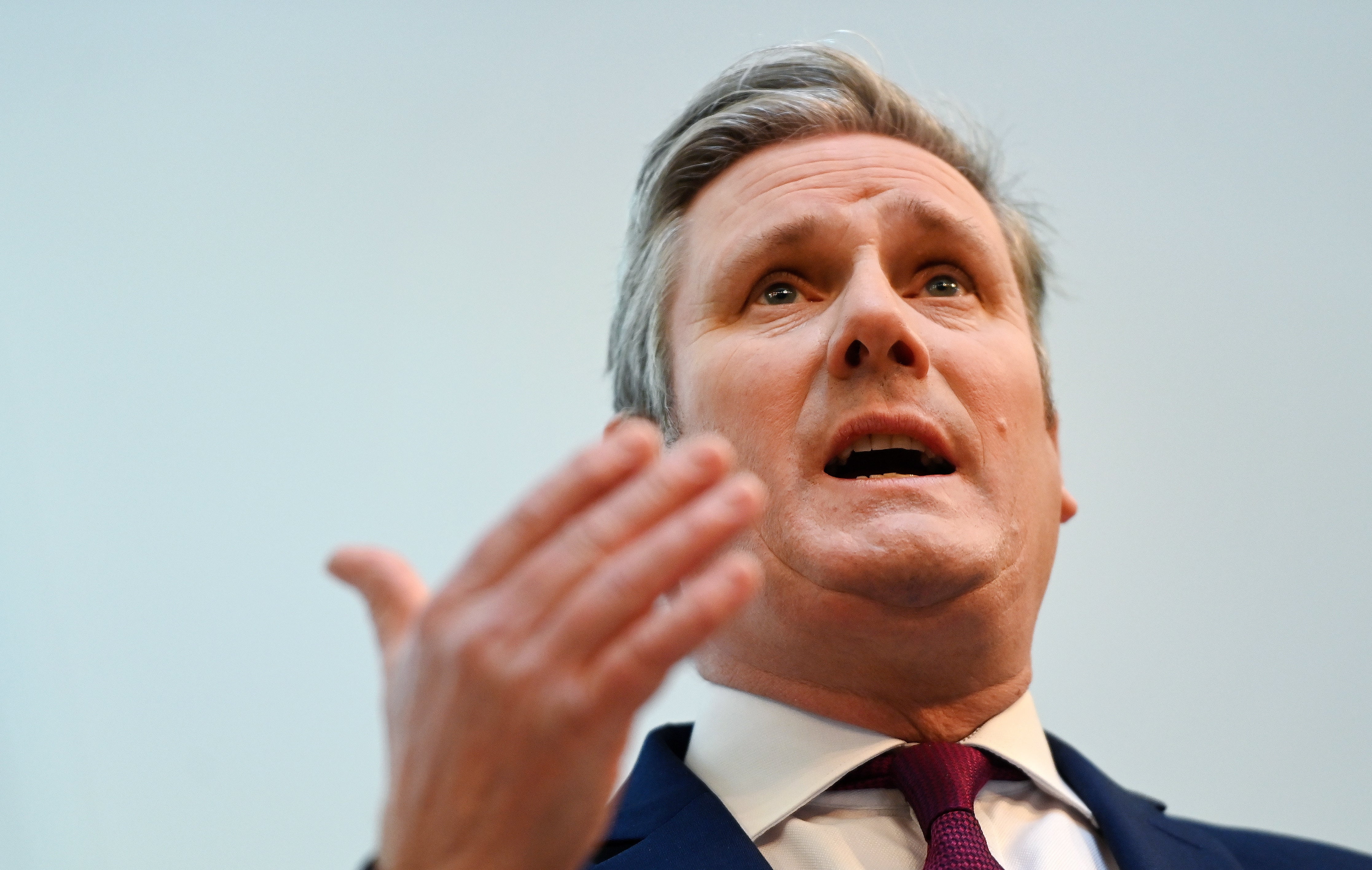The Conservatives have failed the NHS but Labour needs more than platitudes
Editorial: Sir Keir Starmer set out his ‘health contract’ with the British people but he needs to be bolder and more specific

Sir Keir Starmer is right to say that the government is in no fit state to undertake the huge task of rebuilding the National Health Service after the biggest public health crisis since the NHS was founded. Ministers are distracted by the crisis of the prime minister’s leadership, unable to devote their full attention to the people’s priorities.
The Labour leader is right, too, to say that Conservative governments since 2010 have allowed the NHS to slip back from the strong position it was in then – long before the pandemic struck. He glossed over Boris Johnson’s commitment to provide the health service with huge sums of public money, both before and since the arrival of coronavirus, and the courageous decision to raise taxes to pay for it, which Labour pretends to oppose.
But Sir Keir was right to say in his speech to the Fabian Society that more money is not all the NHS needs – “the NHS also needs reform, so that it works in a different way”.
Unfortunately, that was about as far as he got. His speech was full of the telltale signs of a politician busking it. “The Labour government I lead will invest properly to bring down waiting lists,” he told the inheritors of the tradition of Sidney and Beatrice Webb. Well, investment is a euphemism for public spending, and whenever a politician uses the word “properly”, we can be sure that they do not know what they mean.
Anyone who came to Sir Keir’s speech hoping to learn more about Labour’s plan to reform the NHS would have come away disappointed. “We would start by recruiting, training and, crucially, retaining the staff we need,” said the Labour leader, as if such a plan had never occurred to anyone involved in any field of human activity. “We have a five-point plan for the transformation of social care,” he went on. “We would make sure that every older and disabled person who needs care and support can get it when and where they need it.”
There was a lot in this vein: slogans rather than tough choices. An approach to prevention and early intervention called “Home First”; a “new deal for care workers”; a “new partnership with families”. Above all, there was a welcome emphasis on treating “mental health as seriously as physical health”.
But what would a reformed NHS be like? We were offered only banalities: “Every day, algorithms are predicting our shopping choices. Imagine how information like that could be gathered and the insights used for our health. We can connect people with information and choices about their own health.”
It is a good thing that Sir Keir has at least appointed a shadow health secretary who is able to go beyond the platitudes. Wes Streeting said more in a short radio interview recently than the Labour leader said in his entire speech.
“No doubt the next Labour government may have to use private-sector capacity to bring down NHS waiting lists, and I won’t shirk that for a minute to get people better health outcomes,” Mr Streeting said.
To keep up to speed with all the latest opinions and comment sign up to our free weekly Voices Dispatches newsletter by clicking here
That is a difficult thing to say in the Labour Party, and it is important that Mr Streeting is prepared to say it, because it suggests an approach that is ruthlessly focused on outcomes.
The last Labour government used private companies to provide NHS services free at the point of need, but it did not need to rely on them heavily, because the prospect of competition stimulated existing NHS providers to become more efficient. What matters is what works, and Mr Streeting and Sir Keir are going to have to be honest with their party about what that means.
Labour cannot afford to rely on voters to continue to assume that it is the best party for the NHS. Once the Conservatives have got over their current distractions, they have a plan to increase NHS capacity that is – at last – backed by a substantial increase in funding.
Sir Keir’s self-assembly kit of boilerplate phrases at the Fabian Society on Saturday was a disappointment: he needs to be bolder and more specific in setting out how a Labour government would make the NHS better – and keep it better.
Join our commenting forum
Join thought-provoking conversations, follow other Independent readers and see their replies
Comments
Bookmark popover
Removed from bookmarks